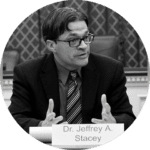The broad goal of this blog, to the credit of its founders, is to bridge the gap between foreign policy practitioners and foreign policy scholars. Prior to joining it recently, I have known its reputation for doing just that. While in government I kept a mental note every time I came across a policymaker who regularly followed the Duck, and frankly I lost count. So in this vein I’d like to quibble with something I thoroughly digested as a student, regularly promulgated as a professor, and gradually began to question as a policymaker. It seems high time to question the usefulness of how we define the term “soft power,” which has gained credence ever since the scholar Joseph Nye came up with it more than decade ago.
Nye’s classic definition of the term–the attractiveness of a country based on the legitimacy of its policies and the political and cultural values that underpin them–seemed reasonable enough when I first became familiar with it in the mid 1990s. The notion that a country’s cultural power could influence other countries and cause their governments to either agree more with a country of cultural prowess or adopt similar values made a lot of sense. The Cold War had recently come to an end, and the rush of East Central European governments to join the West in all ways seemed just the evidence one needed to subscribe not only to the concept, but also the view that the U.S. possessed a whole lot of soft power that was causing other countries to agree with or emulate it. After all liberalism and openness of all kinds were being celebrated, and the new concept of globalization was further and futher in evidence while the third wave of democracy was spreading fast.
But something I always feared as an academic was readily confirmed when I entered the government: more than a decade later, despite the large number of policymakers who learned Nye’s definition in graduate school, for the vast majority of them soft power‘s academic definition is of little practical use. To a pragmatic policymaker the concept is too complex, too difficult to measure, and near impossible to manipulate as a device of influence. While Nye’s definition is intuitive on some level, most policymakers–and especially non American ones–simply choose to define soft power as exercising influence by non military means. And why shouldn’t they? For even more intuitive is the notion that the counterpart to hard power (by military means) naturally is soft power (by non-military means). Thus, the other tools in one’s foreign policy toolbox–from diplomacy to economic sanctions, and development aid to cultural attractiveness–make perfect sense as comprising soft power. Indeed, Hillary Clinton, whom I knew as Madame Secretary, became well known for promoting the concept of smart power, which basically means the same thing and was part of her somewhat successful effort to elevate the D’s of diplomacy and development next to the big D of defense.
So isn’t time we redefine Joseph Nye’s concept as cultural power, one in a number of non military means of Country A attempting to get Country B to do what it otherwise is not inclined to do? Most of the other tools are easier to measure, and almost all of them are easier to use as devices of a state’s foreign policy. It would appear that doing so would further help to reduce the gap between foreign policy thinkers and foreign policy doers. What do you think?
Dr. Jeffrey A. Stacey is currently Managing Partner of Geopolicity USA, an overseas development firm. Formerly he was Senior Fellow at the Center for Transatlantic Relations at SAIS, before which he served in the Obama Administration as a State Department official specializing in NATO and EU relations at the Bureau for Conflict Stabilization Operations. At State he founded and managed the International Stabilization and Peacebuilding Initiative (ISPI), which has over 20 government and international organization partners.
Dr. Stacey is the author of "Integrating Europe" by Oxford University Press and is currently working on a follow-up book entitled "End of the West, Rise of the East?" He has been a guest blogger at The Washington Note and Democracy Arsenal, a professor of U.S. foreign policy at Tulane University and Fordham University, a consultant at the Open Society Institute and the U.S. Institute of Peace, and a visiting scholar at George Washington, Georgetown, and the University of California. He received his PhD from Columbia University.



What harms “soft power” as a meaningful idea is perhaps the word “power.” I suggest “cultural influence” is closer to the original concept. We might even stoop to discussing Good and Bad Examples on occasion.
The term ‘soft power’ actually comes originally from Nye’s book “Bound to Lead: The Changing Nature of American Power”, published in 1990. It was originally proposed to arrest fears of American decline (that perpetual neurosis of the all too powerful!). So, it was actually thought up in response to late Cold War fears, although it found its success in the more optimistic, hubristic post-Cold War world.
Of course whatever the term signifies is something unquantifiable and basically ineffable. To some policymakers this may make it a useless concept but I’d take precisely the opposite approach: its very unquantifiability is its most important lesson. Policymakers act in the real world, not a world of spreadsheets. They act on the basis of intuition as well as data. Moreover, most policymakers act pragmatically, on the basis of ‘what can we get done in this time-frame with these resources?’ — not on the basis of some global, overarching super-strategy that treats reality as a giant, fifty-dimensional chess board. So, why would policymakers need a precise total for everything? Why must soft power be ineffable and instrumentally valuable in order to be real or meaningful? You can’t count your pop music artists in the same way you count your battleships but why on earth would you want to?
The very act of tying all those elements that constitute a country’s ‘soft power’ into a tool to be militantly projected outwards into the world would, if instituted on any scale at all, *destroy* all those cultural entities precisely because they would be torn out of the very environment of free expression that made them possible in the first place. Yes, you can open some libraries and sponsor some pop stars to go out on tour or hire some linguists to translate American literature into other languages and this is all fine and good but (and this, I think, is the key point) the very things that constitute the American state’s soft power depend upon a cultural environment that doesn’t enlist them or instrumentalise them for the sake of a centralised, bureaucratised ‘soft war’ effort.
The very notion that the cultural phenomena residing within a state’s borders can be reduced to mere resources for the projection of state power — this notion is part of the mania of ‘Full Spectrum Dominance’ that *terrifies* most of the rest of the world. The idea that every last nut and bolt of American society should be arrayed and aligned to further American interests is precisely the kind of thing that undermines America’s attractiveness.
The lesson of soft power’s ineffability is, in short, that there are *limits* to power and while policymakers should do what they can with the resources they have (and cultural promotion is one small element of their larger remit) not everything is grist to the mill of national security or interest promotion. At some point you’ve just got to keep your damn hands off, lest you destroy what you are meant to be protecting and promoting!
I totally agree, but it seems like you’re taking the concept in a sort of sociological direction, with room to uncorporate thinkers like bourdieu or even gramsci. I do wonder what nye would think of such a reconceptualization, and furthermore how the IR community would react
Maybe some other non-American IR people can confirm this, but I’m not sure the term ‘soft power’ has that much currency outside the United States academic/foreign policy realm. I don’t believe I heard it once in the Canadian foreign policy community, and have heard it only sparsely in Canadian academia. Canadian IR is heavily influenced by the early contributions of Cox and thereby Gramsci and Carr by extension, so the emphasis on power is somewhat different. Also, Canada has a fetish for institutional membership so influence is continually linked to what organizations the country is part of.
Writing as an European PhD student, I’d say let’s ditch the whole concept altogether – or at least try our best not to use it as an analytical concept, like, ever.
What you may be seeing is a result of a pull back from official PD and cultural diplomacy by the practitioners in Canada. Back in the day, both in academia and the halls of the MFA, soft power was a part of the lexicon, and you would see it evident in both bilat and multilateral diplomacy.
I think that one problem with redefining ‘soft power’ in the way that you suggest is that it is extremely difficult to deploy cultural resources effectively in order to influence the behaviour of others. When we do so, we’re usually engaged in propaganda. In which case we might just use the idea of communicative power or otherwise look at Gramsci or at Critical Theory where there’s already a solid theoretical framework for analysis. And if we’re imagining that our culture has some kind of essential attractiveness which grants us power, as I think Nye is, then we need to ditch the ‘agentic’ definition you’re suggesting: it’s not some country A attempting to change the behaviour of some country B because there is no intentional ‘attempt’. A’s presence may change B’s preferences or subjectivity, but it would do so in a way analogous to how a magnet affects iron filings; it suggests a dispositional definition of power.
The problem with “soft power” is, in part, the nomenclature itself. By referring to it as “soft” and contrasting it with “hard” it immediately sounds weaker, wimpier, and less useful – the feminization of forms of power other than the manly, military form. One might as well have called it “limp power.” Rather than attempting to salvage the term or its somewhat-questionable roots connecting together some kind of vague notion of “attractiveness,” (more feminization), better to get rid of it entirely and use terms and ideas that are more concrete and useful, or at least don’t make it an also-ran residual category into which everything that’s not “hard” is thrown. Diplomatic influence, international prestige, even social power – all these are or can be more precisely defined and do not suffer by being at the losing end of a dichotomy.
“Bound to Lead” is the first hyperlink in the post…I like “Cultural Influence”, as power is a subset of influence (the ability of A to alter B’s thinking if not its behavior)…although there is no way to get rid of soft power as a term…policymakers and journalists everywhere define it as the exercise of power/influence by non-military means…academics need to bow on this one (espeically American ones)…then, a country’s cultural attractiveness can simply be one tool in the toolbox, albeit one that policymakers have near zero control over (at any given time, you either have it or you don’t)…after reading your comments I paid extra attention to the Oscars (how is the U.S. doing?)…I like the nods to Gramsci et al., though academics need to know this cuts them no ice with journalists and policymakers…that would be a nice article for a Sociology journal…excellent comments all
https://www.academia.edu/1141856/Why_Soft_Power_Isnt_So_Soft_Representational_Force_and_the_Sociolinguistic_Construction_of_Attraction_in_World_Politics
I found the following article quite useful to think about soft power, though the paper itself is written in the context of the normative power Europe debate: https://ejt.sagepub.com/content/early/2012/06/19/1354066112437768.abstract